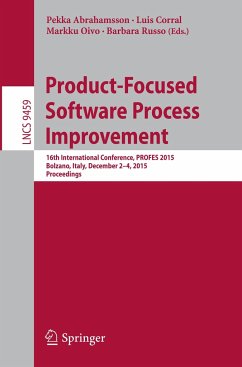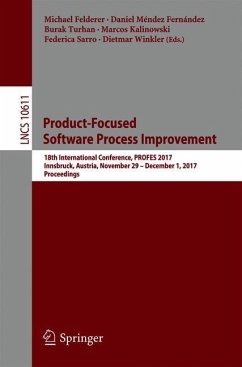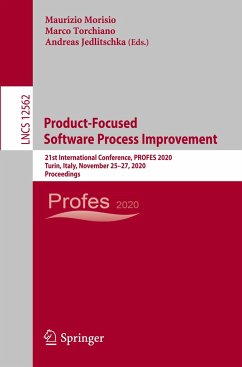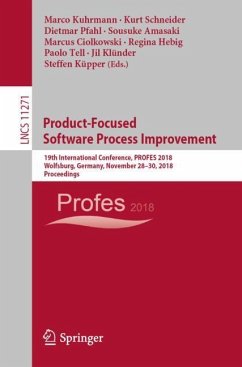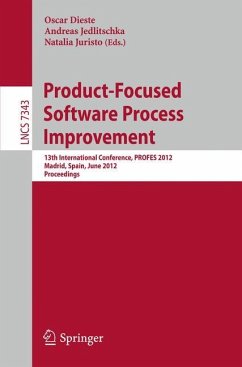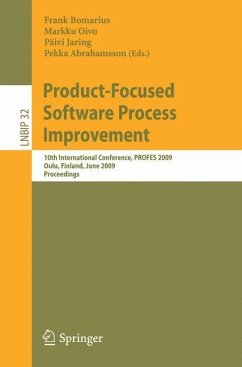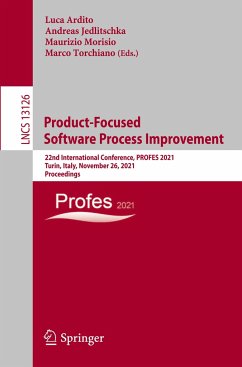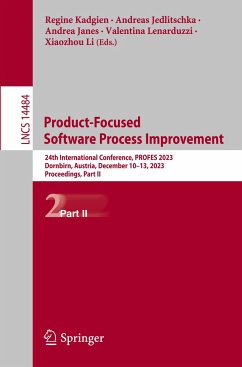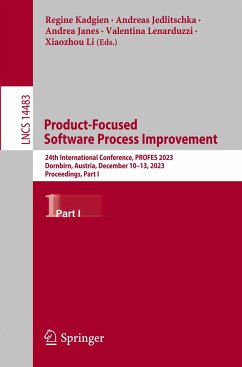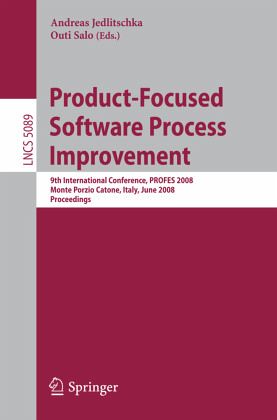
Product-Focused Software Process Improvement
9th International Conference, PROFES 2008, Monte Porzio Catone, Italy, June 23-25, 2008, Proceedings
Herausgegeben: Jedlitschka, Andreas; Salo, Outi

PAYBACK Punkte
19 °P sammeln!
On behalf of the PROFES Organizing Committee, we are proud to present to you the proceedings of the 9th International Conference on Product-Focused Software Process Improvement (PROFES 2008) held in Frascati - Monteporzio Catone, Rome, Italy. Since 1999, PROFES has established itself as one of the recognized international process improvement conferences. The main theme of PROFES is professional so- ware process improvement (SPI) motivated by product and service quality needs. Focussing on a product to be developed, PROFES 2008 addressed both quality en- neering and management topics including ...
On behalf of the PROFES Organizing Committee, we are proud to present to you the proceedings of the 9th International Conference on Product-Focused Software Process Improvement (PROFES 2008) held in Frascati - Monteporzio Catone, Rome, Italy. Since 1999, PROFES has established itself as one of the recognized international process improvement conferences. The main theme of PROFES is professional so- ware process improvement (SPI) motivated by product and service quality needs. Focussing on a product to be developed, PROFES 2008 addressed both quality en- neering and management topics including processes, methods, techniques, tools, - ganizations, and enabling SPI. Both solutions found in practice and the relevant research results from academia were presented. Domains such as the automotive and mobile applications industry are growing r- idly, resulting in a strong need for professional development and improvement. Nowadays, the majority of embedded software is developed in collaboration, and distribution of embedded software development continues to increase. Thus, PROFES 2008 addressed different development modes, roles in the value chain, stakeholders' viewpoints, collaborative development, as well as economic and quality aspects. - ile development was included again as one of the themes. Since the beginning of the series of PROFES conferences, the purpose has been to bring to light the most recent findings and novel results in the area of process - provement, and to stimulate discussion among researchers, experienced professionals, and technology providers from around the world.





